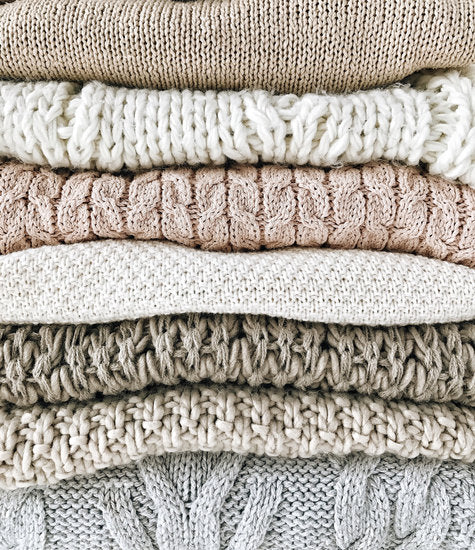As we become more conscious of the choices we make in our everyday lives, the fabrics we wear play a significant role in both our comfort and the planet’s well-being. Natural fibers, sourced from sustainable plant and animal-based origins, offer us a beautiful, ethical alternative to synthetic materials. Whether we’re talking about soft cotton, luxurious silk, or durable hemp, these fibers are not only more environmentally friendly, but they also carry a rich heritage of craftsmanship and care.
Take **cotton** for example, the timeless staple in our wardrobes. Cotton, grown from the fluffy fibers of the cotton plant, has long been loved for its breathability, moisture-wicking properties, and gentle feel on the skin. Whether you’re wrapped in a cozy cotton blanket on a cool evening or wearing a soft tee on a warm day, cotton never fails to deliver on comfort.
Another elegant choice is **linen**. Originating from the flax plant, linen offers a crisp, refined simplicity. Its moisture-wicking properties make it perfect for warmer climates, while its natural texture brings a rustic charm. There’s a reason linen has been a favorite for centuries—it’s breathable, beautiful, and sustainable.
**Hemp**, with its remarkable strength and versatility, stands out as one of the most eco-friendly textiles available. It requires minimal water and pesticides to grow, and the fibers only get softer with each wear. If durability is what you seek, hemp is the ideal option, whether for everyday use or long-lasting wardrobe staples.
For those chilly days, **wool** steps in as nature’s insulator. Its ability to regulate body temperature makes it a go-to for keeping warm in the cold and staying cool when the weather shifts. From chunky sweaters to soft scarves, wool’s versatility and coziness are unmatched.
And then there’s **silk**, the very definition of luxury. Spun from the delicate threads of silkworms, silk brings an unparalleled softness and sheen. Its ability to regulate temperature means it’s just as comfortable in summer as it is in winter, offering elegance and comfort year-round.
But beyond their beauty and tactile qualities, these natural fibers have something more to offer—sustainability. As we become more aware of the environmental damage caused by synthetic fabrics, natural fibers present a kinder, more responsible choice. Clothes made from natural fibers decompose faster, are processed with fewer harmful chemicals, and require less water. They’re also breathable and gentle on sensitive skin, making them ideal for people with allergies or sensory sensitivities.
Choosing natural fibers also supports ethical labor practices. Many brands committed to sustainability and fair trade use natural fibers that meet high environmental and ethical standards, ensuring the well-being of workers and minimizing their environmental impact.
Whether it’s the timeless comfort of cotton, the refined charm of linen, or the luxurious grace of silk, natural fibers offer an opportunity to embrace fashion that’s as good for the earth as it is for your wardrobe. Every choice we make, from the materials we wear to the brands we support, is a step toward a more sustainable and mindful future.
I encourage you to explore the beauty of natural our fiber clothing—not just for the way it feels or looks, but for the positive impact it has on the world.
Take **cotton** for example, the timeless staple in our wardrobes. Cotton, grown from the fluffy fibers of the cotton plant, has long been loved for its breathability, moisture-wicking properties, and gentle feel on the skin. Whether you’re wrapped in a cozy cotton blanket on a cool evening or wearing a soft tee on a warm day, cotton never fails to deliver on comfort.
Another elegant choice is **linen**. Originating from the flax plant, linen offers a crisp, refined simplicity. Its moisture-wicking properties make it perfect for warmer climates, while its natural texture brings a rustic charm. There’s a reason linen has been a favorite for centuries—it’s breathable, beautiful, and sustainable.
**Hemp**, with its remarkable strength and versatility, stands out as one of the most eco-friendly textiles available. It requires minimal water and pesticides to grow, and the fibers only get softer with each wear. If durability is what you seek, hemp is the ideal option, whether for everyday use or long-lasting wardrobe staples.
For those chilly days, **wool** steps in as nature’s insulator. Its ability to regulate body temperature makes it a go-to for keeping warm in the cold and staying cool when the weather shifts. From chunky sweaters to soft scarves, wool’s versatility and coziness are unmatched.
And then there’s **silk**, the very definition of luxury. Spun from the delicate threads of silkworms, silk brings an unparalleled softness and sheen. Its ability to regulate temperature means it’s just as comfortable in summer as it is in winter, offering elegance and comfort year-round.
But beyond their beauty and tactile qualities, these natural fibers have something more to offer—sustainability. As we become more aware of the environmental damage caused by synthetic fabrics, natural fibers present a kinder, more responsible choice. Clothes made from natural fibers decompose faster, are processed with fewer harmful chemicals, and require less water. They’re also breathable and gentle on sensitive skin, making them ideal for people with allergies or sensory sensitivities.
Choosing natural fibers also supports ethical labor practices. Many brands committed to sustainability and fair trade use natural fibers that meet high environmental and ethical standards, ensuring the well-being of workers and minimizing their environmental impact.
Whether it’s the timeless comfort of cotton, the refined charm of linen, or the luxurious grace of silk, natural fibers offer an opportunity to embrace fashion that’s as good for the earth as it is for your wardrobe. Every choice we make, from the materials we wear to the brands we support, is a step toward a more sustainable and mindful future.
I encourage you to explore the beauty of natural our fiber clothing—not just for the way it feels or looks, but for the positive impact it has on the world.


